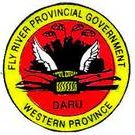
Second term North Fly Open MP and Vice Minister for Mining and Border Issues Hon.James Donald has ensured his people are economically resilient when the giant Ok Tedi gold and copper mine in his district of Western Province ceases operation in due time.
The People’s Reform Party (PRP) founder and parliamentary leader has commercialised the production of rice and rubber in his first term in office (2017-2022) and is well ahead into the commercialisation of vanilla farming with the establishment of the Controlled Estate Fly Vanilla project at Samagos in the Kiunga Rural LLG which is nearly into its final stages with the necessary infrastructures and transplanting of vanilla vines.
“So far 8,500 cuttings planted for both nursery and green houses. 10,000 more cuttings will be nurtured and transplanted in the next 2 months,” revealed Donald.
The Agriculturist turned politician said that the formal commissioning of the project is anticipated around May or June later this year with the exact date yet to be confirmed by all parties concerned.
“Return on Investment ( ROI) in agriculture isn’t seen quickly but it pays off when it’s correctly done and picks up,” Donald stressed.
The second term MP is concerned about the life after the Ok Tedi mine closes which he admits concerns only a few leaders as he doesn’t want the people to be economically fragile but must have agriculture as their financial security.
“Big thank you to West Agro Holdings, Ok Tedi Development Foundation, OTML, Innovative Agro Industry, Fly River Provincial Government and North Fly District Development Authority (NFDDA) and the people for strong partnership we’ve began,” concluded Donald.
Nationally known as THE REFORMIST, Vice Minister Donald has prioritised the commercialisation of agriculture in his electorate in his first term in office and is continuing because land is the most valuable asset his people own individually.
The Ok Tedi Mining Limited (OTML) commenced mining operations in 1984, initially as a gold mine to exploit the gold-rich cap on the Mt. Fubilan deposit, and then as a copper-gold mine in 1987 for the bulk of the ore body continuing today and has steadily supported the country’s economy annually.
